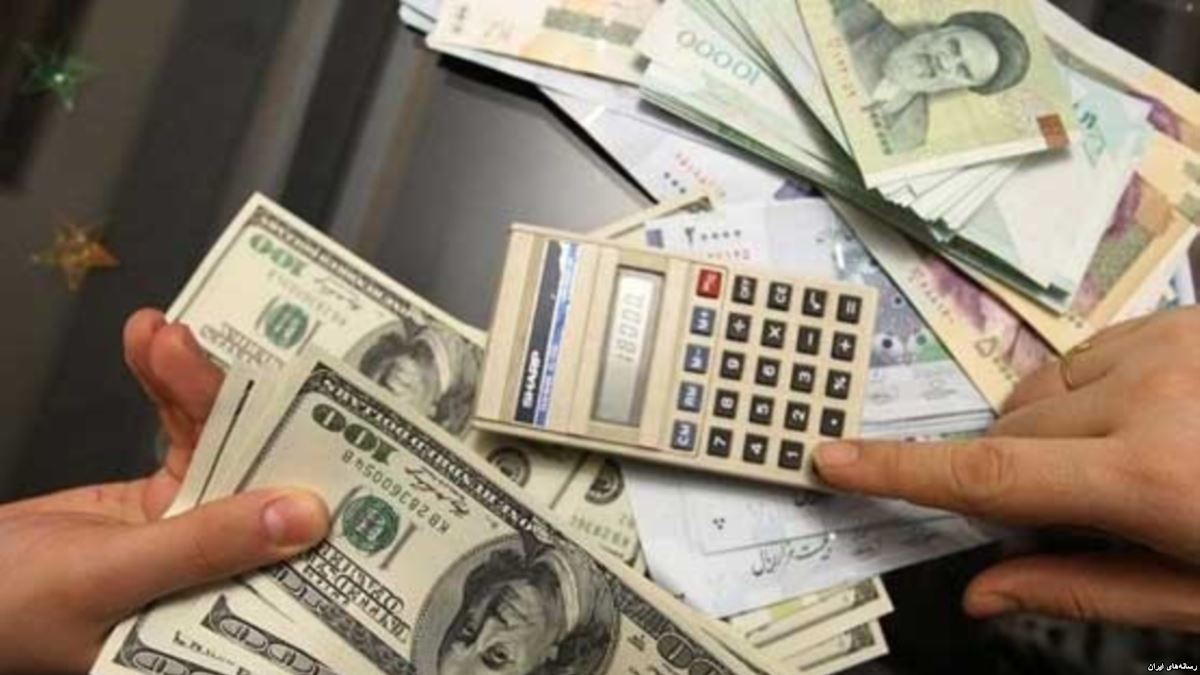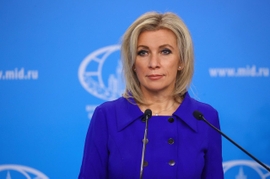Iran’s President Hassan Rouhani on Tuesday pledged to bring some stability to the country’s volatile currency market in the wake of a recent rally of foreign currencies.
“I advise the nation to shun stepping in this risky path [of the forex market] for their own good,” Rouhani said, according to the Islamic Republic News Agency. “Our foreign exchange position is even better than before, since we have negotiated $30 billion of foreign funds, and $12 to 13 billion of which have been finalized,” he added.
Tehran is trying to dissuade investors away from the foreign exchange (“forex”) market, as the national currency, the rial, is weakening and hitting record lows. Iran’s economy minister Masoud Karbasian cautioned investors who expect high and quickly-made gains to stay away from the currency market, or face losses when the market stabilizes.
The U.S. dollar jumped by almost 24.5 percent and euro surged by 43 percent against the national currency, the rial, since the Iranian calendar year began in March 2017. The U.S. dollar and other foreign currencies have been rising against the rial for months, with fluctuations that have made it impossible for economists to forecast the future of Iran’s economy.
Economic volatility in Iran is no small matter. Protests in December against the government’s handling of the economy quickly had spread to several cities across the country by early January, including Tehran.
Iran’s Central Bank over the past several weeks has essentially failed to pump the required amount of dollars into the market.
The Governor of the Central Bank of Iran, Valiollah Seif, announced on February 6 a scheme to issue foreign currency bonds for the first time in the country in a move to provide forex investors with an alternative financial investment instrument.
“Currently, there are a variety of choices for investors, including the monetary market, the stock market, the bond market and the housing sector,” Seif said, according to IRNA. “Within the next two weeks, the Central Bank will issue the foreign exchange bond which is one of the most attractive options,” he said.
On the same day, the bank announced a pre-sale of gold coins at below-market prices, through branches of Bank Melli across the country, as another attempt to stabilize the market and facilitate easier financial access for Iranians. The coins cannot be exchange for currency until the mature. They are being sold with maturity periods of three, six, nine and 12 months.
The actual sale prices of the coins have not been announced, but according to the central bank prices will be calculated based on market rates on the maturity dates.
According to ISNA news agency, about 13,000 pieces of gold coins were sold on the first day of the scheme which means that the country’s banking system managed to attract about 130 billion rials, or $2.8 million, on free market rates on the same day.
Analysts say that Iran’s pre-sale of gold is part of the government’s attempt to prevent liquidity in the currency market, by channeling it into the gold market. Some critics of the Rouhani administration over the past several months have accused the government of supporting the rally of the foreign currencies.
Parliamentarian Ahsan Alavi on Tuesday repeated the accusations against Rouhani during an interview with the Iran Students Correspondents Association, iscanews.ir, saying the government had a role in recent market fluctuations.
“The government definitely played a key role in increasing the rates of the foreign currencies in order to cover its budget deficit,” independent Alavi, who represents Sananadaj City, said.
Rouhani has dismissed any allegations that the government intentionally pushed up the rate of foreign currencies against the rial.
“Some say the government is behind the surging rates. This could have been true if the government faced a budget deficit. This year, we have no budget deficit,” Rouhani said.
The spokesman for the judiciary, Gholamhossein Mohseni Ejehi, on February 4 announced that security officials had brought at least six individuals to prosecution over the recent fluctuations in the currency rate.
“Six individuals have been prosecuted over their roles in currency fluctuation but I am not informed if they have been arrested or released,” he said.
Mehrdad Seyed Asgari, an Iranian financial analyst based in Norway, believes the administration’s reluctance to pump the U.S. dollar into the market would make things even worse.
“In case the financial authorities fail to adopt proper policies in order to supply the required amount of the foreign currencies into the market, we should expect more volatility in near future,” he told Caspian News.







 Azerbaijan, Uzbekistan, and Kazakhstan are planning to merge their energy systems following a historic memorandum of understanding (MoU) signed by ...
Azerbaijan, Uzbekistan, and Kazakhstan are planning to merge their energy systems following a historic memorandum of understanding (MoU) signed by ...
 President Ilham Aliyev praised Azerbaijan’s cultural diversity as a key factor in fostering peace, stability, and unity within the country, where a...
President Ilham Aliyev praised Azerbaijan’s cultural diversity as a key factor in fostering peace, stability, and unity within the country, where a...
 Ulviyya Fataliyeva, a female Azerbaijani chess grandmaster, was crowned this week at the European Women’s Chess Championship (EWCC) in Rhodes, Gree...
Ulviyya Fataliyeva, a female Azerbaijani chess grandmaster, was crowned this week at the European Women’s Chess Championship (EWCC) in Rhodes, Gree...
 Maria Zakharova, the spokeswoman for the Russian Foreign Ministry, has firmly stated that Russia categorically rejects any suggestion of exchanging...
Maria Zakharova, the spokeswoman for the Russian Foreign Ministry, has firmly stated that Russia categorically rejects any suggestion of exchanging...



